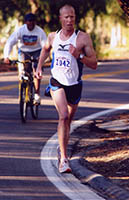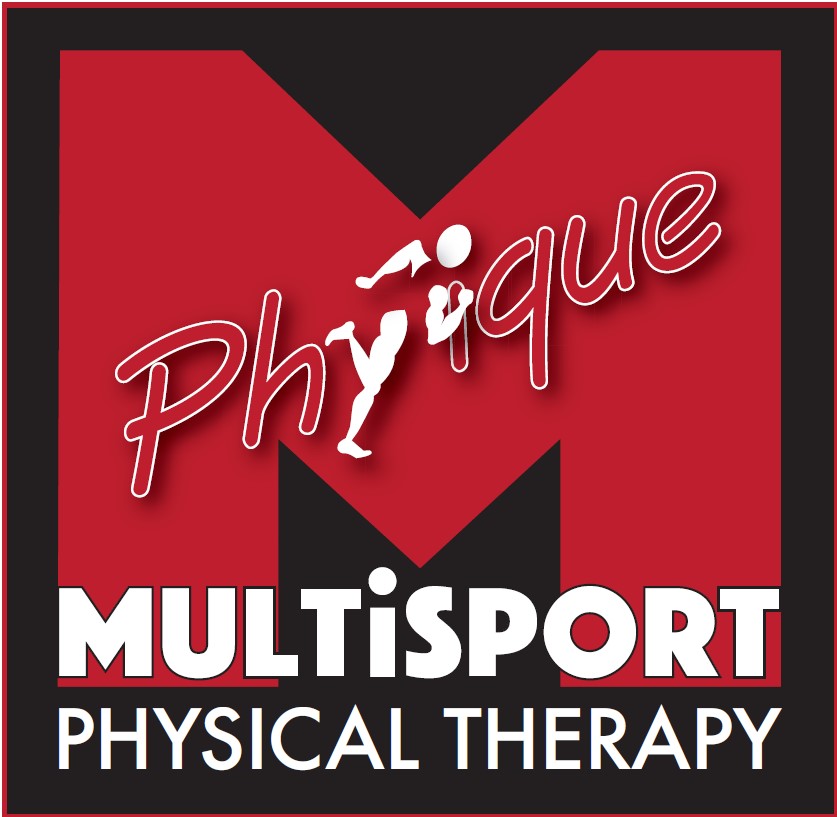Jim Vance

I had the pleasure recently of talking Ironman and triathlon with the Tri Club’s very own Jim Vance. Included among Jim’s many racing successes are his 2 amateur World Championships (2004 XTERRA Worlds and 2005 ITU Worlds for Men 25-29) and 3rd place finish at the 2006 Ironman Florida. Please join me as we learn what makes this fast guy tick!
Craig: What was your first triathlon like?
Jim: I did an off-road duathlon in Temecula in March of 2003. I was racing mountain bikes, NORBA Semi-Pro at the time, and decided to give it a try, since I had a running background, (ran cross country and track at Nebraska). I wasn’t in any kind of shape, and got 3rd. Suddenly, everyone was telling me to do a triathlon. I didn’t know how to swim though, and initially blew off the idea.
My first triathlon was actually a San Diego Tri Club race, in May of 2003. I think I got 5th, behind Mike Plumb, and a few other club members who were pretty good. I came into that race after just a few weeks of swimming, and remember thinking, “Swimming can’t be that hard, especially with a wetsuit!” Needless to say, I was wrong. I remember having to stop on the swim because I was hyperventilating, and couldn’t put my face in the cold water. I also borrowed my best friend’s road bike, (I didn’t even own a road bike), and threw some aero-bars on it, thinking that’s all a tri bike was. I remember passing a lot of guys on the bike, and the run. Funny thing was, I was out of shape for running, and thought I ran horribly slow! A few weeks later I did San Diego International and got 14th overall, 2nd amateur, and beat over half the pro field. It was that point where I thought I could maybe accomplish some cool things in the sport.
Craig: What was the first triathlon you did as a professional?
Jim: My first race as a pro was actually the 2005 XTERRA West Champs, at Temecula. (The rules for USAT put me in a position where I had to race pro-XTERRA but amateur on the roads). It did not go well. I had made some changes to my mountain bike position, and it really affected my lower back. I was in such pain in my low back, I wanted to drop out, but it was my first pro race, and it was local. I couldn’t drop out. It was an experience which really set me back, especially mentally and emotionally, since I had prepared so much for that race. Honestly, I was devastated.
Craig: In your multi-sport career, which 3 performances are you most proud of and why?
Jim: The Florida race is the best performance of my career, so far. Outside of that, there are 3 races which probably made the biggest difference in my career, and which I will always cherish.
The first race was the XTERRA West Championships in 2004, at Big Bear. It was a mass start, and allowed me my first chance to race head to head against pro’s like Conrad Stoltz, Nico LeBrun, Josiah Middaugh, Jimmy Archer and a bunch of others. I had a great race, and finished 9th overall, one of the highest finishes ever by an amateur in an XTERRA Championship race. I remember passing Nico LeBrun on the second lap of the bike, and dropping him on the descent. I came into T2 so excited, I was practically yelling! Here I was passing a guy who had been 2nd at the XTERRA World Champs! (He would actually win it all in 2005).
Another big race was the XTERRA World Championships in Maui, in 2004. I was the top amateur finisher, earning my first Amateur World Championship and getting 17th place overall. I nearly ran down Peter Reid, and beat some of the biggest names in the sport. It’s still one of the best moments of my career, especially since I was an elementary school teacher going against those guys.
The other big race was winning the ITU World Championships in 2005, for Men 25-29. I had always wondered if many of the Europeans and others were not into XTERRA, and perhaps I needed to prove myself against them in road tri’s. This win really validated all my accomplishments. It also helped to confirm my decision to leave my teaching job and focus on triathlon, as the right one.
Craig: So now you have really raced the whole spectrum – Xterra, Olympic distance, 70.3 and Ironman. You have at least 1 data point with each of those. Which gave you the most joy?
Jim: Honestly, no race has ever given me the joy I felt when I turned that final corner at Florida, and saw the finish line. Everything I had committed to that race, and the injuries I dealt with, it all paid me back that day. I was so fired up, jumping and hollering. If you saw the video of the finish, you can’t see under my Rudy Projects, and you wouldn’t guess it by my excitement, but I was in tears. As soon as I crossed the line, I walked back to Orlanda, (my fiancé at the time), and we hugged, both in tears. It was the single most emotional moment of my life. I came into that race facing a lot of doubts, and a field that was stacked with amazing resumes. I really took a leap of faith, and just had to believe in myself. To finish 3rd, it was a moment that confirmed for me that I can do anything I put my mind to. That’s a really powerful event to come to grips with…
Craig: I recall that a few years ago you had 3x Ironman World Champion Peter Reid as your coach? What was that experience like? And how did you begin a coaching relationship with him?
Jim: Peter and I battled a few good races at XTERRA Worlds. Later my Canadian connections found us training together in Victoria, BC. I remember doing a run workout in the cold and rain, in February, just Peter and I. It was actually then that I threw the idea of me doing an Ironman at him. I figured, who better to ask? He gave me a lot of feedback on the idea, and told me he thought it was perfect for my body type, and mentality. We became friends, and continued to talk some.
When he retired, I called him, and congratulated him on a great career. Jokingly, but half serious, I asked him if he was interested in coaching me. After mulling it over, he said yes. That was the beginning.
Peter has brought a lot of confidence to my training, and taught me so much. He convinced me to stop racing so much, and put my money on Ironman racing. When I was ready to quit back in September of 2006, he gave me a solid kick in the butt, (scolded me), and got me back on the right track. As we approached race day, he and I both saw I was ready. He prepared me so well, MENTALLY. Ironman requires a lot of hard work, but on race day, it’s all mental. He taught me that more than anything.
I’ve been blessed with 3 amazing coaches in my career, Greg Welch, Peter Reid and most recently Joe Friel. It’s incredible when I think about it. They are three of the classiest people I’ve met, and have taught me so much beyond sport, it truly has been a blessing.
Craig: What should a person look for when looking to hire a triathlon coach?
Jim: When an athlete is looking for a coach, they are actually looking to build a relationship with that person. The coach has to be honest with them and their goals, but support them in whatever way they need, and do it in a positive manner. Also, most athletes who get a coach don’t need help with the motivation of training, they need someone to tell them when not to train, or when to make smarter decisions about their training. Sometimes athletes think they’re ready for this, but some find out they are not too keen about it when this happens. So I think an athlete needs to be honest and ask themselves, “What do I want a coach for?” Do they want someone to just tell them they are doing everything right, and nothing needs to change? Or do they want someone who is going to be honest and teach them new things, new ways of training, and new ways of thinking.
Craig: What are the primary benefits of having a triathlon coach?
Jim: I think the biggest benefit is someone to hold you accountable, as well as someone to tell you when it’s time to back-off. We can get so caught up in the moment, and think every race is important, or every group ride must be a race. Many times athletes need someone to just help them keep their eyes on their major goals, and not make decisions which could sacrifice those goals.
Craig: What advice would you pass along to someone attempting their first triathlon in 2009?
Jim: Be a sponge. Absorb all the information you can, but keep an open mind for better or different ways of doing things as you mature as an athlete. Also don’t think the only way to do well is to have the most expensive equipment. I’ve never owned a bike, or any other piece of race equipment which has allowed me to train less, or train dumb. It comes down to you, the athlete, and that’s where the focus should be.
Craig: What advice would you pass along to someone attempting their first Ironman in 2009?
Jim: Besides racing conservatively, (because that is the biggest thing), there were a few things which really stuck in my mind all day, during the race. Someone told me, “You can’t control anything out there but your attitude.” If you think positive thoughts, your race experience is entirely different than someone thinking negatively.
The other was every time I got nervous about the race I had to remember it’s VERY LONG! Anything can happen, and if things go bad, it’s still a long enough race to salvage a great performance. It’s just too long of a race to be nervous for. If you focus on the task at hand, and the things you can control, it’s amazing how well it will go.
Craig: What is the funniest thing you have seen in training or racing?
Jim: An event which isn’t necessarily funny, but still sticks in my mind, was my DQ in the Portobelo International Triathlon in Portobelo, Panama, (yes, Panama in Central America). This race is so tough, with gravel roads for road bikes, and mountains to pass over on the run. (Seriously, I was swimming on the run course!) I broke my chain when I was in 2nd place, trying to catch Kerry Classen. I didn’t have a chain tool, and had to borrow one. Unfortunately, I didn’t know how to say, “Chain tool?” in Spanish! No one knew what the hell I was asking for! I had to laugh at the predicament I was in. When I finally found an English speaker who had one, I started to fix my bike. A bunch of Panamanian children gathered around me, watching me fix my bike. They were so poor a lot of them had never ridden a bicycle. All I heard was a bunch of Spanish, mixed with “Ohs!” and “Ahs!” Here I was, a skinny white boy with a $5000 bike, fixing it on the side of a road in rural, north coastal Panama, surrounded by non-English speaking kids, from extreme poverty. If I had a picture of it, I would bet National Geographic would publish it. (I ended up fixing the chain, only to have it break again. The derailleur ripped off, and I had to get a ride back to T2. I completed the run, but was DQ’d for not finishing the bike.)
Craig: If you could waive a magic wand over the sport of triathlon, what would you like to see changed?
Jim: I’d like to see development at the youth, high school and collegiate levels be improved. I think if triathlon became a legitimate NCAA Division 1 sport, it would dramatically raise the level of competition and performances we see.
Craig: Some things really go full circle. I know you gave up your full time teaching career to race professionally. Now you are no longer racing professionally, but you are a 100% full time triathlon coach. You don’t grab me as a Michael Jordan or Brett Favre type of guy, but do you have any temptation to un-retire and race again?
Jim: I might come back to racing, I just don’t know. I wouldn’t say I’m retired, but I won’t race in 2009, I know that. When I left teaching and went into professional racing, I wasn’t doing it for the money. As I got older though, that began to change. My focus changed to making money, and when I struggled to accomplish making money, it was stressful. I felt like I was letting my family down, and not being able to provide financial support. That was tough, and when things went bad with a flat at SOMA and sickness at IMAZ, it was like a betrayal. All that hard work and nothing to show for it. It was the exact opposite of Florida in 2006. I was fitter than Florida, (especially my run fitness), so it was tough to swallow.
I also had realized mentally, I was getting tapped. I was starting to focus more on what I was missing out on than what triathlon was giving me. All the experiences I couldn’t do because I was too busy training, or racing.
Now I’ve decided to step away and focus on securing my family’s future, and making sure I come back to the sport to race for the right reasons, not for money. My coaching has taken off because I have attacked it with the same attitude and commitment I showed to racing. This has been great to see, and I do love the teaching aspects of it.
The other great thing is I have become a much better coach in my time away from racing. I think this will only make me a better athlete if I return. I still have things I wanted to accomplish in the sport, but my mind has to be right. I have to want to do the incredible amount of training day after day, for at least a year, just be ready to compete. That’s a big commitment, and taking it lightly isn’t my style.
Craig: How has your wife, Orlanda, contributed to your success as a professional triathlete and now as a coach?
Jim: Orlanda has been very patient, that’s for sure. Triathlon is such a selfish endeavor, especially when the commitment level at the elite level is considered. It’s hard to be a good husband and balance it all, and I’m certainly not perfect. It’s no surprise that our marriage has improved quite a bit since I left racing. If I come back, I hope that it will be better at the balance.
She’s been thru a lot with me, the full circle as you mentioned. She’s been thru it all.
Craig: Jim, thanks for sharing your story with all of us. We wish you and Orlanda all the best of luck! Jim can be reached for your triathlon coaching needs by contacting him at: jvance@trainingbible.com or CoachVance.blogspot.com.








